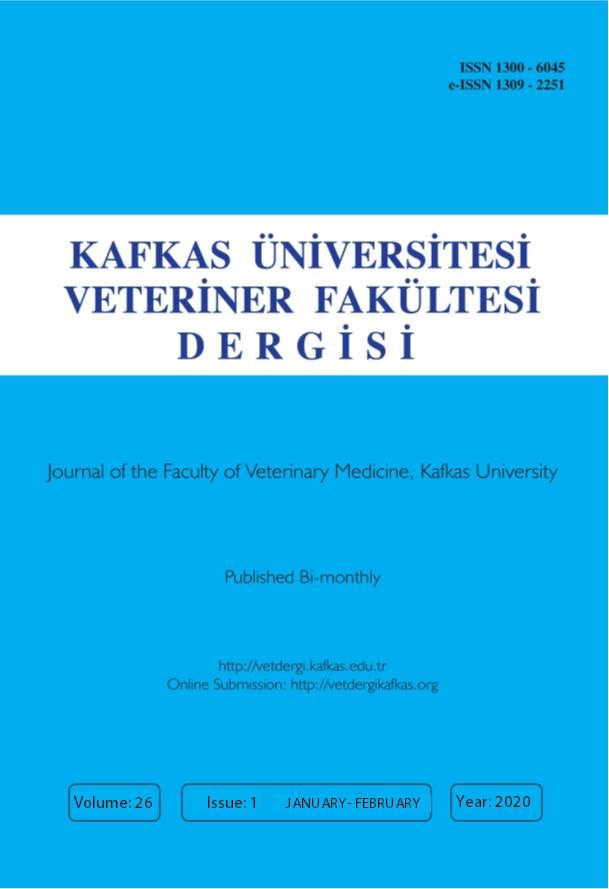
This journal is licensed under a Creative Commons Attribution-NonCommercial 4.0 International License
Kafkas Üniversitesi Veteriner Fakültesi Dergisi
2020 , Vol 26 , Issue 1
Sero-Prevalence Survey of Small Ruminant Lentivirus (SRLV) Infections in Kosovo
1Kosovo Food and Veterinary Agency, Industrial Zone, 10 000 Pristina, KOSOVO2KAHL Project, Kosovo Animal Health and Laboratory, EUROPEAID/133795/DH/SER/KX, Str. Zejnel Salihu 28, Nr. 12, 10000 Pristina, KOSOVO
3European Union Office in Kosovo/European Union Special Representative in Kosovo, P.O. Box 331, 10 000 Pristina, KOSOVO
4Veterinary Epidemiology and Economics research Unit (VEERU) & PAN Livestock Services Ltd., University of Reading, School of Agriculture, Policy and Development, Reading, RG6 6AR, UK
5Istituto Zooprofilattico Sperimentale delle Venezie (IZSVe), Legnaro (PD), ITALY
6Faculty of Agriculture and Veterinary, University of Prishtina, Str. Bill Clinton, n.n., 10 000, Pristina, KOSOVO DOI : 10.9775/kvfd.2019.22022 The objectives of this cross-sectional study were to detect the presence of small ruminant lentiviral infections in Kosovo and estimate the serological prevalence for the year of 2016 . A total of 5.272 sheep and 435 goats were tested using a commercially available indirect enzymelinked immunosorbent assay (ELISA) for Maedi-Visna/Caprine Arthritis-Encephalitis, giving an overall individual sero-prevalence in sheep of 34.8% (95% confidence interval 31.8% to 38.0%), and a flock prevalence of 85%, and in goats an overall individual sero-prevalence of 15.6% (95% confidence interval 7.2% to 25.6%) and flock prevalence of 35%. Sero-prevalence in sheep was higher in the South and West of Kosovo, whereas in goats was higher in the East and South. There were no statistically significant differences in sero-prevalence between sheep in different age groups <2 year to ≥4 year. There were statistically significant differences between the age groups in goats: chi square 25.74 (3d.f.) with P-value <0.0001. Increasing sero-prevalence observed in goats up to 4 years old with a sharp drop in goats older than four years highlights the need for further investigation based on clinical impact and genotype characterization. While retained sero-positive sheep in the population beyond 4 years old may suggest mild clinical impact of small ruminant lentiviral infections in Kosovo sheep. Keywords : Small ruminant lentivirus, Maedi-Visna, Caprine Arthritis-Encephalitis, ELISA, Kosovo










